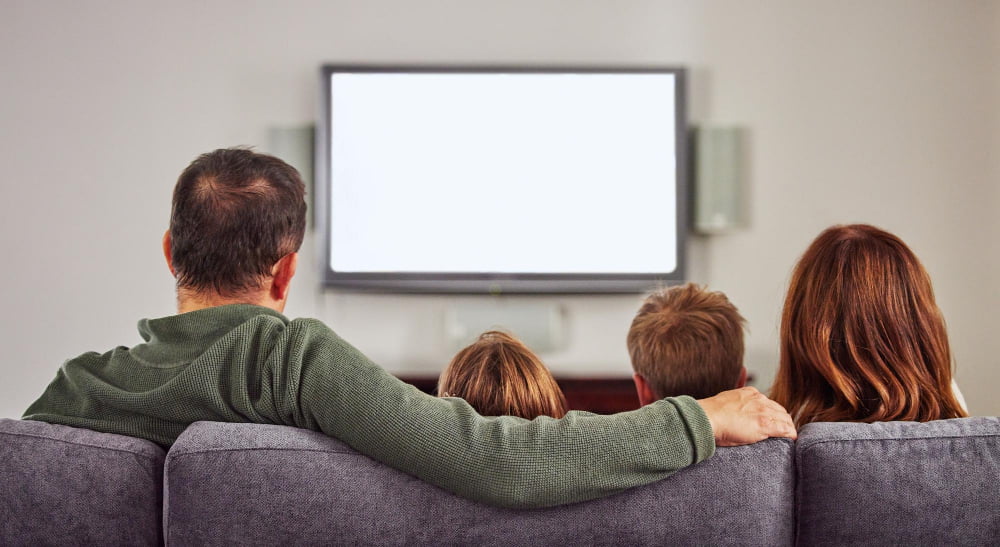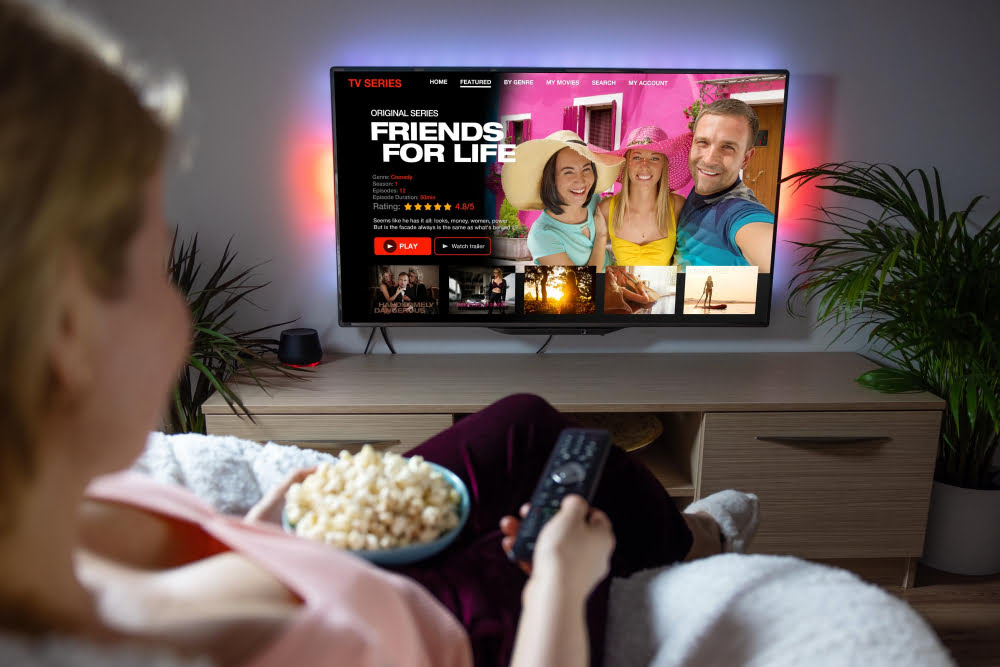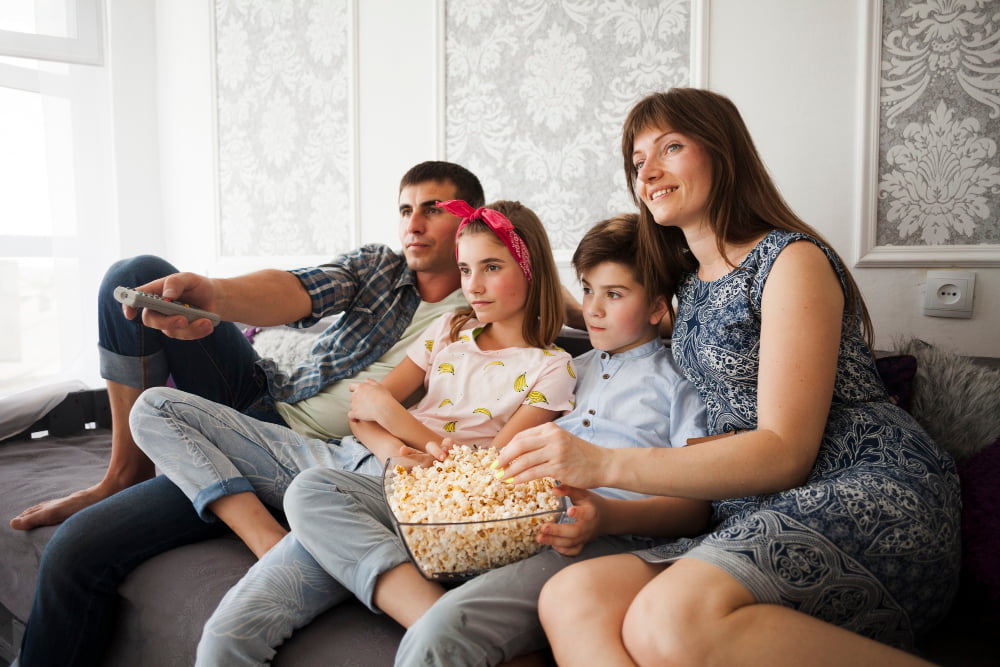Exploring popular TV shows gives us a rich understanding of diverse parenting styles and their impact on child development.
TV shows often depict a variety of parenting styles, providing a mirror to our own approaches and attitudes towards child-rearing. From the authoritative parents in “The Cosby Show” to the permissive style exhibited in “Modern Family,” these shows offer insights into the strengths and weaknesses of different parenting methods.
In this article, we’ll delve into the most popular TV shows, dissecting the parenting styles portrayed, and discussing how they influence real-world parenting. You’ll find detailed analysis and examples that will help you understand these styles better, and perhaps even reflect on your own parenting approach.
Stay tuned as we embark on this enlightening journey through the lens of popular culture.
Key takeaways:
- Authoritative, authoritarian, permissive, and uninvolved are the main parenting styles.
- “Modern Family” showcases permissive parenting, while “The Cosby Show” depicts authoritative parenting.
- “Malcolm in the Middle” portrays an authoritarian parenting style.
- “The Goldbergs” illustrates a democratic parenting style emphasizing love and discipline.
- TV shows shape societal norms and perceptions of parenting.
Here You Will Learn:
Definition of Parenting Styles

Parenting styles refer to the various strategies individuals use to raise their children. Psychologists commonly classify these styles into four main categories: authoritative, authoritarian, permissive, and uninvolved.
Authoritative parents lead with warmth and responsiveness but also assert control and set clear standards. These parents value open communication and encourage independence.
Authoritarian parents, on the other hand, enforce strict discipline and demand obedience without offering much open dialogue or responsiveness.
Permissive parents prioritize warmth and responsiveness over control or discipline, often indulging their children’s wishes and offering few rules.
Lastly, uninvolved parents show little responsiveness towards their children’s needs or desires and exert minimal control over their actions, often due to lack of time or energy.
These categorizations provide a framework for understanding the dynamic variations in parental guidance as we examine these styles in the context of TV shows.
Comparing Parenting Styles Across Selected TV Shows

Analyzing the dynamic Dunphy family from “Modern Family” reveals a predominantly permissive approach. Phil and Claire Dunphy, while well-meaning and loving, often struggle with setting boundaries, reflecting the challenges faced by real-life parents battling the same issues.
In stark contrast, “The Cosby Show” presents Dr. Cliff and Clair Huxtable practicing an authoritative parenting style. Despite the humor, they impress upon their children, the importance of values, education, and discipline, offering balanced autonomy and boundaries.
“Malcolm in the Middle” depicts a more authoritarian style. Lois, the matriarch, enforces strict rules and expects obedience, which often leads to conflict, highlighting the repercussions of this high-demand, low-response strategy.
On a softer note, the caring and supportive parents in “The Goldbergs” practice a more democratic style, nurturing a balance between love and discipline.
Each of these shows reflects the impact our parenting choices have on our children, underlining the importance of understanding and adapting our parenting styles according to our child’s individual needs.
Understanding Cultural Differences in Parenting Through TV Shows

Television networks across the globe interpret parenting through their unique cultural lens. In an American sitcom such as “The Simpsons,” family values often revolve around individuality and democratic communication.
The Middle Eastern series “Tash Ma Tash,” depicts patriarchal influence and obligation to family ties.
Japanese anime like “My Neighbor Totoro” reinforces a culture of respect and independence.
These varying depictions serve as a microcosm of larger societal norms, demonstrating how cultural expectations shape parenting styles.
This variety in portrayals encourages viewers to appreciate and learn from different parenting approaches globally.
How Sitcoms Portray Parental Roles

Traditionally, sitcoms have often depicted parental roles in stereotypical manners. Consider the bumbling dads often contrasted with the overly nurturing, almost infallible moms. “Everyone Loves Raymond” and “The Simpsons” provide excellent examples of this trope.
However, in the quest for relevance and authenticity, modern sitcoms have evolved to challenge these traditional stereotypes. Examples abound with “Modern Family’s” depiction of a same-sex couple raising an adopted daughter, and “One Day at a Time’s” portrayal of a single mother raising her two children alongside her own elderly mother. Such shows aim to replicate the changing dynamics of real-world family structures and roles, promoting a nuanced understanding of parenthood.
Moreover, sitcoms today highlight the realities of shared household responsibilities and emotional labor in parenting. Shows like “Black-ish” and “The Big Bang Theory” present parents who continually adapt to their evolving roles, fostering an environment that embraces fairness and equal contribution.
Far removed from the one-dimensional parent figures of previous generations, these narratives bring forward a multidimensional, humanized view of parenting, where mistakes are common and learning is continuous.
Critique of Parenting Stereotypes in Television

Television shows frequently resort to common archetypes, presenting an oversimplified image of parenting roles. The ‘helicopter’ mom, the ‘clueless’ dad, or the ‘strict’ parent are recurring characters.
This stereotypical representation lacks depth and realism. It not only fails to capture parents’ multifaceted roles but also undermines their competency and adaptability.
The uneven portrayal of motherly figures often overly-emphasizing nurturing, while de-emphasizing intellect, is a significant concern. Equally problematic is the portrayal of fathers as detached or goofy, which hampers the depiction of healthy paternal involvement.
It is essential for scriptwriters to create more nuanced characters that challenge these stereotypes, providing viewers with relatable and diverse representations of parenthood.
Analysis of Positive Parenting Portrayed in TV Shows

Consistently portrayed in successful sitcoms like “The Fresh Prince of Bel-Air” and drama series like “This Is Us,” elements of positive parenting can act as educative tools for viewers.
Crucial components of this style, such as active listening, nurturing guidance, and consistent support are vividly portrayed in Phil and Claire Dunphy’s interactions with their children in “Modern Family.”
Their approach sets an example of maintaining open communication, fostering empathy, and developing problem-solving skills.
Demonstrating patience in times of conflict, reinforcing positive behavior, and respecting children’s individuality signifies a commitment to positive parenting models.
These positive on-screen depictions contribute to shaping viewer’s attitudes, and subtly provide a benchmark for healthy parent-child dynamics.
Role of Television in Shaping Parent-Child Relationships

Televised parental roles shape perceptions not only among parents but also children. They present a blueprint of expected behaviors in various situations.
For instance, a child watching a show might believe that the way a TV character’s parents respond to specific circumstances is the norm. Similarly, an adult may unknowingly emulate the parenting style seen on shows, reinforcing these behaviors at home.
While TV’s influence isn’t all-encompassing, it undeniably contributes significantly to the formation of parent-child relationship dynamics.
Therefore, it’s crucial to foster media literacy to identify and comprehend the representations and stereotypes shown on TV correctly.
Moreover, encouraging open discussions about these portrayals can promote understanding and reinforce appropriate real-world interactions.
The Impact of TV Shows On The Perception of Parenting

Television impacts perceptions of parenting by capturing and presenting various approaches to raising children. Influential shows often shape societal norms, expectations, and behaviors related to parenting.
For example, a show that constantly portrays parents as lenient or lacking in authority may inadvertently encourage such behaviors in real life.
Conversely, shows that showcase constructive dialogue and problem-solving strategies between parents and kids promote these positive actions.
Recognizing these influences can help viewers critically analyze content and potentially mitigate any negative effects.
Moreover, understanding this can encourage proactive dialogue about the representation of parenting in the media and bring attention to the need for diverse, healthy parental archetypes.
FAQ
What is the TV show about different types of parenting?
The TV show about different types of parenting is “The Parent Test”, a reality-TV program on ABC hosted by Adolph Brown and Ali Wentworth.
What is an example of an authoritative parenting style in a TV show?
The Pearson family from the television show “This Is Us” exemplifies the authoritative parenting style through their firm yet affectionate approach, focus on their children’s well-being, open communication, and inclusion of their children in decision-making processes.
What parenting style is Matilda’s parents?
Matilda’s parents exemplify permissive parenting style, characterized by the absence of rules and guidelines.
How does The Simpsons showcase permissive parenting style?
The Simpsons showcases permissive parenting style through the character of Homer Simpson who frequently shows lack of guidelines and discipline for his children, opting instead for a more lax and non-confrontational approach.
In what ways does the parenting style in Modern Family contribute to character development?
In Modern Family, the diverse parenting styles, from Claire and Phil’s liberal approach, Mitchell and Cam’s overprotective one, to Jay’s traditional method, contribute to character development by influencing their children’s behavior, decisions, and overall personality.
How does SpongeBob SquarePants, as a parent figure, exemplify uninvolved parenting style?
SpongeBob SquarePants, in the role of a parent figure, exemplifies the uninvolved parenting style by largely neglecting parental responsibilities, displaying minimal emotional involvement, and providing little to no guidance or supervision.